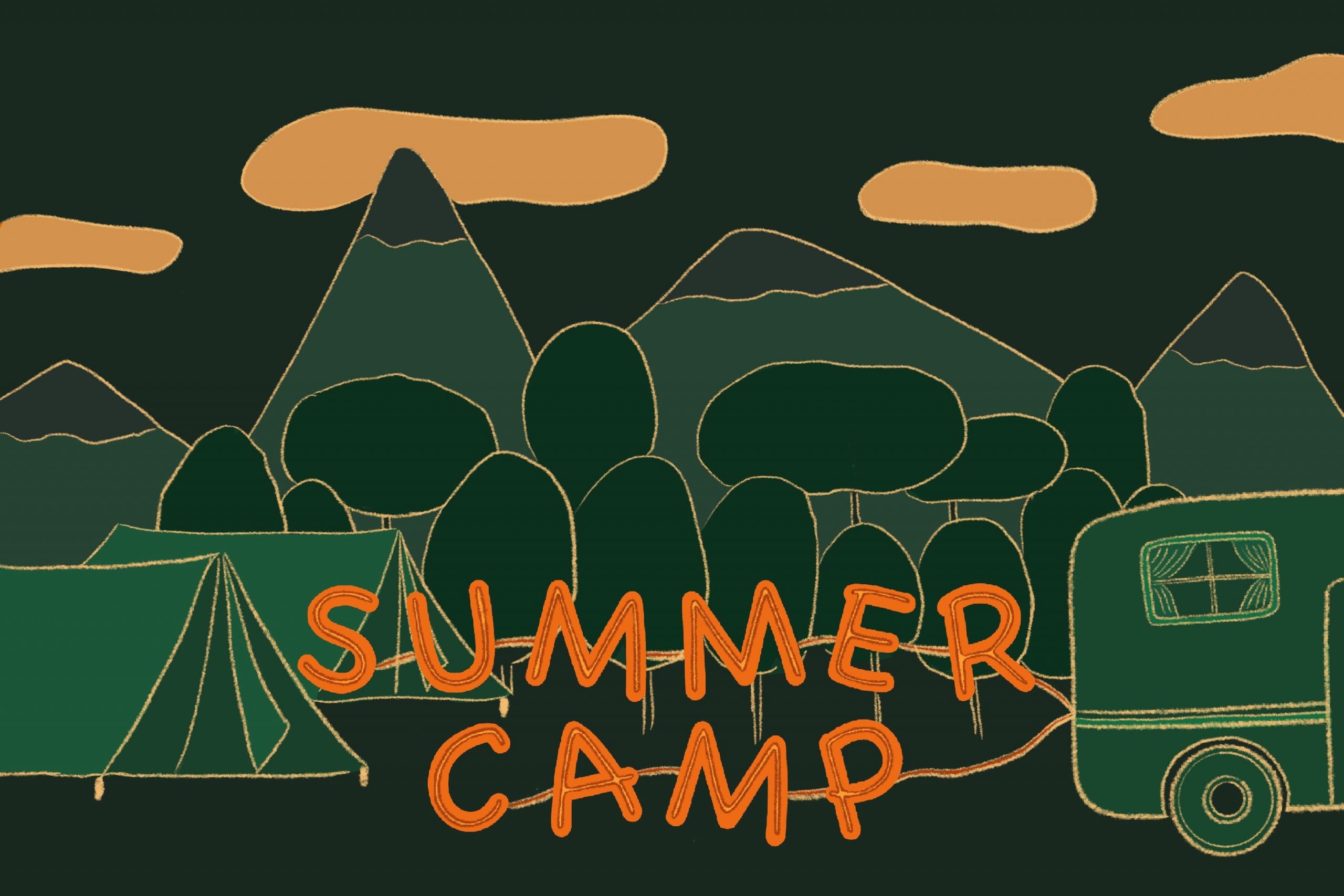Ever since I was nine years old, I have spent most of my summers at Camp Birch Trail for Girls, a sleepaway camp in the middle of nowhere in Wisconsin. While I was a camper for seven years, the past three summers I’ve been a counselor. I was on track to return this year, until my camp unfortunately closed for the summer due to COVID-19 concerns.
There are many counselors at Birch Trail who, like me, foresee themselves working at camp for as long as they possibly can. But there are also many counselors who only work one or two summers at camp, due to the societal pressures of entering “the real world.” Many see sleepaway camp as a fun and immature way to spend the summer. After all, why spend your summers doing something childish and low-paying when you can have a real job or a summer internship?
But I disagree with this. As fun as camp is, it’s also a learning experience. While my camp hosts staff training a week prior to camp to instruct counselors on first aid, safety and camp rules, there are countless “soft skills” that I’ve learned through my everyday experiences as a counselor.
1. Patience
Perhaps the most important skill I’ve learned is patience. As a counselor for the youngest age group, I often have campers who take twice as long to do seemingly simple tasks, such as getting dressed, putting on sunscreen or cleaning up after meals. As frustrating as it may be at times, it’s taught me to be more patient in other aspects of my life.
2. Responsibility
When parents send their kids to summer camp, they are trusting that they are in good hands: mine. For the weeks that I’m a counselor, I treat the kids in my cabin as if they are my own. While I try to ensure their summer is fun and fulfilling, I also go to great lengths to make sure they are safe, healthy and happy throughout the time they’re at camp.
3. Teamwork
Counselors are often not alone in the cabin; they work in pairs or in teams with other counselors (known as co-counselors or “cos”). Co-counseling teams must work together to delegate responsibilities and solve problems, both within the cabin and among themselves.
I’ve had the good fortune to work with some great co-counselors, but I’ve also worked with people who had different styles and approaches than I have. Though frustrating, these experiences are just preparation for future peers and colleagues I may not agree or get along with.
4. Stress Management
Working at camp is hard. I’m essentially “on-call” 24/7 with very few breaks. Suffice it to say, it can be very taxing. However, I’ve learned how to maintain a positive attitude in the face of stressful situations, both for myself and for my campers. I’ve also learned to take advantage of the few breaks I do get, taking the time to relax and recuperate.
5. Leadership
As a counselor, I am a role model. I try my best to set a good example for my campers, so that they know they can look up to me for instruction, guidance or general advice.
Camp also provides other avenues to show leadership. Many camps, such as my own, have leadership teams that help manage and supervise camp. This past summer I had the privilege of being a part of such a team. As my camp’s project director, I was a leader for both campers and staff, coordinating and supervising projects for everyone.
6. Problem-Solving
I come across many problems daily that need to be solved. Whether it’s a conflict between campers or just a general situation that needs my intervention, I’ve gotten pretty good at coming up with creative solutions.
7. Creativity
Working as a camp counselor has also increased my general creativity. I spend a lot of time thinking about what my campers will enjoy and planning accordingly. I’ve coordinated scavenger hunts, organized cabin birthday parties and created random games to entertain my campers.
9. Empathy
A key skill I’ve learned is empathy. One of the hardest things for campers at sleepaway camp is the sleepaway part. Leaving their parents for the first time ever, many children at camp are inevitably homesick. As someone who suffered from extreme homesickness as a camper, I’ve learned to think back to my own struggles with homesickness and put myself in their shoes to understand what they’re going through.
9. Flexibility
At sleepaway camp, things don’t always go the way they’re planned. In many situations, I’ve had to be understanding and adaptable. As a result, I’ve learned how to stall and improvise as needed, a skill that comes in handy in all sorts of situations.
10. Confidence
As a camper, I learned how to be comfortable with who I am. This didn’t stop when I became a counselor. At sleepaway camp, I am confident and constantly embracing my weirdness around my campers. Although it’s taken time, I’ve learned how to apply my camp confidence to everyday situations.
Working at a sleepaway camp may not be regarded as a “real job,” but the skills I’ve learned as a counselor are bound to help me in the real world. And if you find yourself looking for a job next summer, consider working at a camp. It’s a rewarding experience you won’t regret.

















